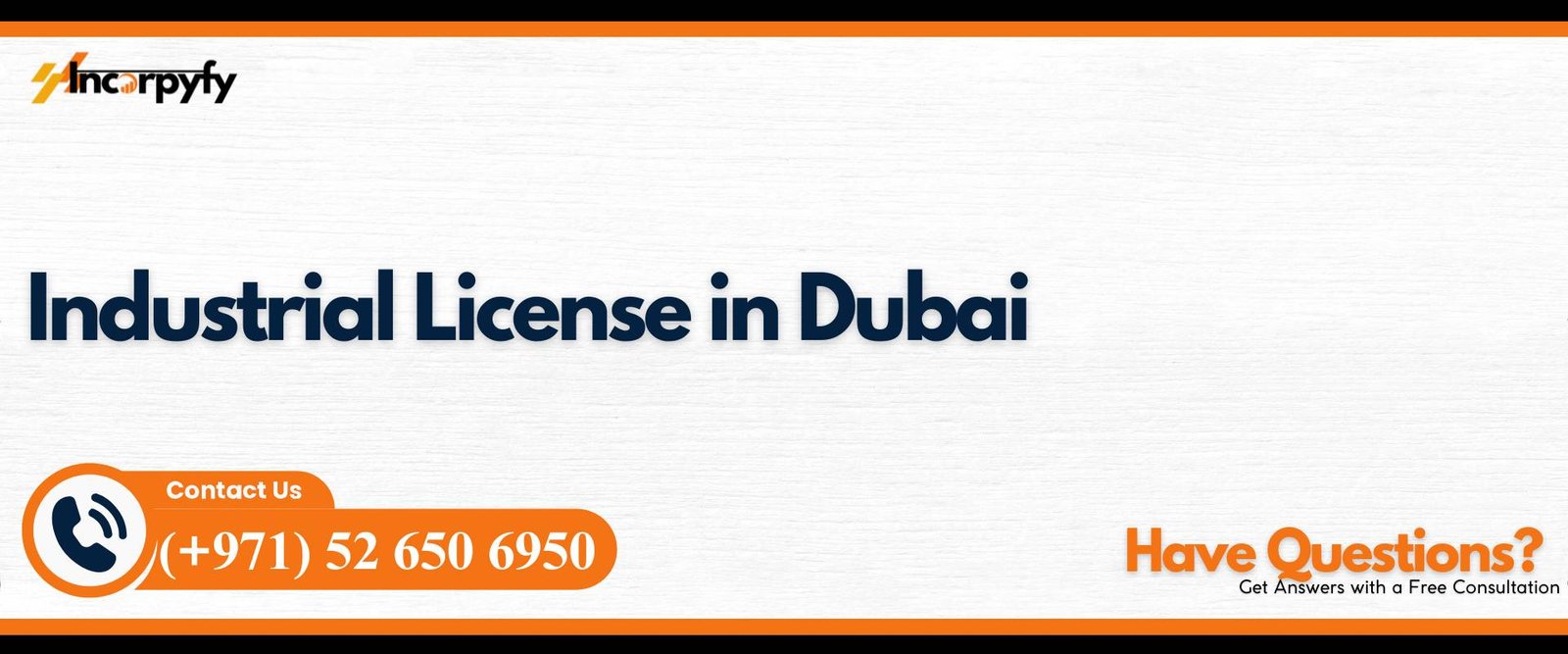
Dubai, a global hub for trade and innovation, offers unparalleled opportunities for entrepreneurs looking to establish a manufacturing business. Securing an industrial license in Dubai is a critical step for those aiming to tap into the city’s thriving industrial sector. With its strategic location, tax-free environment, and world-class infrastructure, Dubai provides the perfect ecosystem for industrial businesses to flourish. This 1500-word guide dives deep into the process of obtaining an industrial license, its benefits, requirements, and how to succeed in Dubai’s dynamic manufacturing landscape. Whether you’re launching a factory, production unit, or industrial operation, this article will equip you with the knowledge to make your business startup a success.
Why Choose Dubai for Your Industrial Business?
Dubai has transformed into a powerhouse for industrial activities, attracting entrepreneurs and investors worldwide. Here’s why it’s the ideal destination for your manufacturing venture:
Strategic Location for Global Trade
Located at the crossroads of Europe, Asia, and Africa, Dubai offers seamless access to international markets. Its proximity to major shipping routes and world-class ports like Jebel Ali Port makes it a logistics hub for industrial businesses.
Tax-Free Environment
Dubai’s zero corporate tax and zero personal income tax policies allow industrial companies to maximize profits, reinvesting in production facilities, technology, and expansion.
World-Class Infrastructure
Dubai boasts cutting-edge industrial parks and free zones, such as Jebel Ali Free Zone (JAFZA) and Dubai Industrial City, designed to support manufacturing and logistics. These zones offer state-of-the-art warehouses, factories, and supply chain solutions.
Access to a Skilled Workforce
Dubai’s diverse talent pool includes skilled engineers, technicians, and logistics experts, making it easy to build a competent team for your industrial operations.
Understanding the Industrial License in Dubai
An industrial license allows businesses to engage in manufacturing, processing, or assembling products in Dubai. Issued by the Department of Economic Development (DED) for mainland businesses or by free zone authorities, this license is tailored for industries like food processing, textiles, chemicals, or electronics manufacturing.
Types of Industrial Activities Covered
An industrial license covers a range of activities, including:
- Manufacturing: Producing goods like machinery, consumer goods, or construction materials.
- Processing: Transforming raw materials into finished products, such as food processing or chemical refining.
- Packaging: Preparing products for distribution or export.
- Assembly: Assembling components into finished goods, like electronics or automotive parts.
Key Regulatory Bodies
The DED oversees mainland industrial licenses, while free zones like JAFZA, Dubai Industrial City, and Sharjah Industrial Zone have their own authorities. Each ensures compliance with UAE regulations and industry standards.
Requirements for Obtaining an Industrial License in Dubai
Securing an industrial license requires meeting specific criteria to ensure compliance and operational readiness. Key requirements include:
Minimum Capital
Depending on the business scale, a minimum capital investment is required, typically ranging from AED 100,000 to AED 1 million. This ensures your business has the financial capacity to sustain industrial operations.
Business Plan
A comprehensive business plan outlining your manufacturing process, target market, production capacity, and financial projections is mandatory. This helps authorities assess the viability of your industrial venture.
Facility Requirements
You’ll need a physical facility such as a factory, warehouse, or production unit. Free zones offer pre-built industrial spaces, while mainland businesses may require leased or purchased land.
Environmental Approvals
Industrial businesses must comply with environmental regulations set by the Dubai Municipality. This may involve obtaining a No Objection Certificate (NOC) for activities like chemical manufacturing or waste management.
Qualified Personnel
Appointing a manager or technical supervisor with relevant industry experience is essential. Some free zones may also require a compliance officer.
Steps to Secure an Industrial License in Dubai
The process of obtaining an industrial license is streamlined but requires careful planning. Here’s a step-by-step guide:
Step 1: Identify Your Industrial Activity
Determine the specific manufacturing or processing activity your business will undertake. This dictates the license type and jurisdiction.
Step 2: Choose a Jurisdiction
Dubai offers mainland and free zone options. Free zones like JAFZA or Dubai Industrial City are ideal for export-oriented businesses due to tax exemptions and 100% foreign ownership. Mainland setups allow access to the local market.
Step 3: Select a Company Name
Choose a company name that complies with UAE naming guidelines. Avoid offensive or religious terms and ensure the name reflects your industrial activity.
Step 4: Submit Your License Application
Prepare and submit your application to the DED or free zone authority. Include documents like your business plan, passport copies, lease agreement, and proof of capital.
Step 5: Secure Facility and Approvals
Lease or purchase a factory or warehouse. Obtain necessary NOCs from the Dubai Municipality for environmental compliance or safety standards.
Step 6: Open a Corporate Bank Account
A corporate bank account is required for financial transactions and capital deposits. Banks like Emirates NBD, HSBC, or Mashreq Bank offer tailored services for industrial businesses.
Step 7: Obtain Visas
Apply for residence visas for yourself and your employees. Free zones provide visa quotas based on your facility size or business scale.
Step 8: Launch Your Industrial Business
With your industrial license, facility, and infrastructure in place, you’re ready to commence manufacturing operations.
Benefits of an Industrial License in Dubai
An industrial license in Dubai offers significant advantages for manufacturing businesses:
Tax Exemptions
Free zones provide zero corporate tax and customs duty exemptions, reducing operational costs and boosting profitability.
100% Foreign Ownership
Free zones allow 100% foreign ownership, giving entrepreneurs full control over their industrial ventures.
Access to Global Markets
Dubai’s logistics infrastructure and free trade agreements facilitate easy export to markets in the Middle East, Africa, and beyond.
Scalability
Dubai’s industrial parks and free zones are designed for business growth, offering scalable facilities and support services.
Challenges to Navigate
While Dubai is a prime destination for industrial businesses, there are challenges to consider:
- High Setup Costs: Leasing or purchasing industrial facilities and meeting capital requirements can be costly.
- Regulatory Compliance: Adhering to environmental, safety, and labor regulations requires ongoing effort.
- Competition: Dubai’s thriving industrial sector means you’ll compete with established players, necessitating a strong market strategy.
Tips for Success in Dubai’s Industrial Sector
To thrive in Dubai’s competitive industrial market, consider these strategies:
Invest in Technology
Adopt advanced manufacturing technologies like automation or IoT to enhance production efficiency and reduce costs.
Focus on Sustainability
Incorporate eco-friendly practices to comply with environmental regulations and appeal to conscious consumers.
Build a Strong Supply Chain
Leverage Dubai’s logistics hubs to create a robust supply chain, ensuring timely delivery of raw materials and finished goods.
Utilize Digital Marketing
Implement SEO strategies targeting high-traffic keywords like “industrial license in Dubai” to attract investors and clients. Use content marketing and social media to boost brand visibility.
Conclusion
Securing an industrial license in Dubai is a strategic move for entrepreneurs aiming to establish a manufacturing business in a global hub. With its tax-free environment, world-class infrastructure, and access to international markets, Dubai offers an ideal platform for industrial ventures. By carefully navigating the licensing process, investing in technology, and leveraging Dubai’s unique advantages, you can build a thriving industrial business. Whether you’re producing consumer goods, electronics, or chemicals, business setup in Dubai provides the foundation for long-term success.
FAQs
What is an industrial license in Dubai?
An industrial license allows businesses to engage in manufacturing, processing, or assembling products in Dubai, regulated by the DED or free zone authorities.
How much does an industrial license cost in Dubai?
Costs vary but typically range from AED 15,000 to AED 50,000 for license fees, plus additional costs for facility leasing and capital investment.
Can foreigners own an industrial business in Dubai?
Yes, free zones offer 100% foreign ownership, making Dubai attractive for international entrepreneurs.
Which free zone is best for an industrial business in Dubai?
Jebel Ali Free Zone (JAFZA) and Dubai Industrial City are top choices for their industrial facilities and export benefits.
How long does it take to obtain an industrial license in Dubai?
The process takes 4-8 weeks, depending on the jurisdiction, application completeness, and regulatory approvals.






